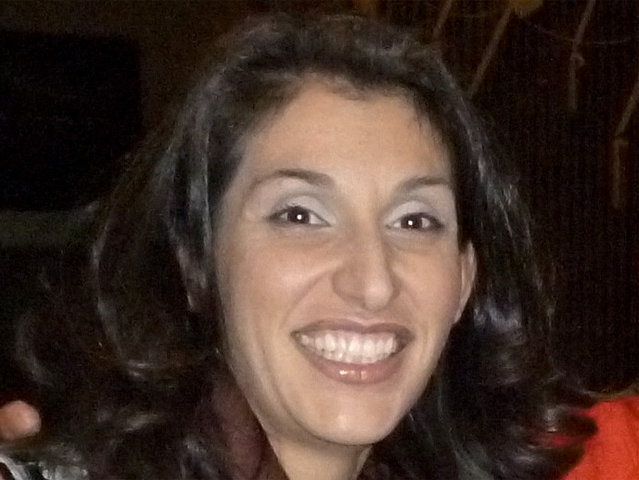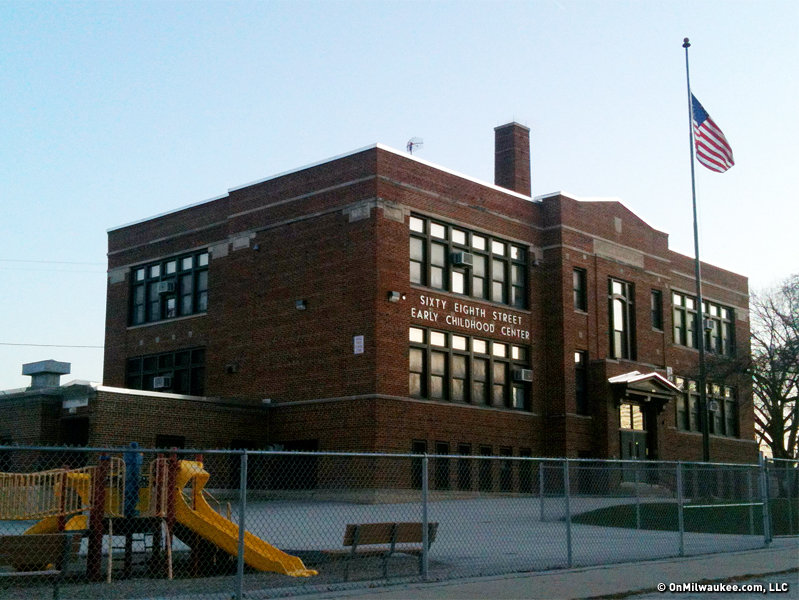Tis the season for wish lists and resolutions; those ever-hopeful tallies of our rosy expectations for the upcoming dozen months.
I like to approach each new year with a similar optimism for health, success for my chosen teams and the worldwide blossoming of peace.
As 2011 wrapped up, I was fully engrossed in the facilities changes being discussed at Milwaukee Public Schools and like everyone involved, I hope the future moves bring success.
Avoiding politics for now (that's a whole 'nother list!), here are some of my hopes for what 2012 will bring:
- Improvement. Improvement in the graduation rate, improvement in test scores, improvement in relationships between teachers and administrators, improvement in the regard in which we hold them both. These should, ultimately, spur improvement in the education every single child receives.
- A closing of the achievement gap. There are lots of ideas on all sides about how to do this, but very few have gotten hold of it. Evidence from high-performing charters that provide wrap-around services, for example, suggests that dealing with poverty is a good place to start eating away at the foundation of the gap.
- Better communication. As the discussions around the changes recommended by, and arriving in the wake of, the Long Range Facilities Master Plan have shown, decisions about schools cannot be made – or be perceived to be made – in a vacuum. Closing a school is not like closing an Old Navy in a mall. Children's lives are affected. They are split from their friends, sometimes removed from their neighborhood, separated from mentors. Neighborhoods are affected. And that's just the start. Invite all stakeholders to sit around the table and work out how we trim excess capacity in a way that breeds not only better schools but also fosters community in a city that really could use more of it.
- Expansion of success. Improve the options. The facilities plan recommended this in attempting to give more space to Wisconsin Conservatory of Lifelong Learning, Garland Elementary, Maryland Avenue Montessori, MacDowell Montessori, Hayes Bilingual and Golda Meir. For a number of reasons, these didn't all take this year. Let's start the conversations now and make 2012 the year in which we make these and other similar recommendations a reality.
- Some neighborhood schools. You might think this runs counter to my previous item but it doesn't have to. There are strong neighborhoods in Milwaukee that would be stronger if their calls for neighborhood schools were heard and acted upon. A less-strong neighborhood could be bolstered by a great school in its midst. We must remember to do this in a thoughtful manner. After all, we are a segregated city and we cannot allow a return to even some neighborhood schools be an excuse for segregation. Which leads the discussion to ...
- New ideas on transportation. The district spends a lot of money on busing. Allowing some schools to focus on their neighborhood kids could help alleviate some of these expenses. But, again, we must act carefully and wisely.
- A commitment to healthy food. Across the nation, PTOs and schools are looking at ways to offer healthier food options in school breakfast and lunch rooms. At the same time, they are looking at ways to get kids to actually choose those options. But schools cannot do this alone.
- Positive interaction with parents. I know a lot of teachers already do this, but, to those that don't: if you only call home or send a note home when Junior is acting up, you can't be all that surprised that some parents have tuned you out. Call them when he does something great. Tell them you want them to come in not to get a talking to, but to see the great work he's done. It's being displayed on the wall for everyone to see. Mom and dad and should see it, too. A lot of successful schools know how to do this well and understand the importance.
- Parent involvement. Teachers can work hard all day (and evening and weekends) and still never reach a kid who lives in a household with no books; who lives in a household that does not value education; that does not value the child herself. I'm open-minded when it comes to parent involvement. Not everyone has the time or energy to be on the governance council or run the bake sale at school. Give your limited time and energy to your child and he will bring it back to school himself every day. Read to her, help her with her homework, take them to the zoo and the museum on the free days. Turn off the TV, turn off the video games and have dinner together and talk about school and what they're learning and who their friends are. Then, go meet the teacher and the principal and attend teacher conferences. You'll find yourself making the time to become a part of your school community.
Let's make 2012 a great leap forward for Milwaukee's children.
Born in Brooklyn, N.Y., where he lived until he was 17, Bobby received his BA-Mass Communications from UWM in 1989 and has lived in Walker's Point, Bay View, Enderis Park, South Milwaukee and on the East Side.
He has published three non-fiction books in Italy – including one about an event in Milwaukee history, which was published in the U.S. in autumn 2010. Four more books, all about Milwaukee, have been published by The History Press.
With his most recent band, The Yell Leaders, Bobby released four LPs and had a songs featured in episodes of TV's "Party of Five" and "Dawson's Creek," and films in Japan, South America and the U.S. The Yell Leaders were named the best unsigned band in their region by VH-1 as part of its Rock Across America 1998 Tour. Most recently, the band contributed tracks to a UK vinyl/CD tribute to the Redskins and collaborated on a track with Italian novelist Enrico Remmert.
He's produced three installments of the "OMCD" series of local music compilations for OnMilwaukee.com and in 2007 produced a CD of Italian music and poetry.
In 2005, he was awarded the City of Asti's (Italy) Journalism Prize for his work focusing on that area. He has also won awards from the Milwaukee Press Club.
He has be heard on 88Nine Radio Milwaukee talking about his "Urban Spelunking" series of stories, in that station's most popular podcast.







